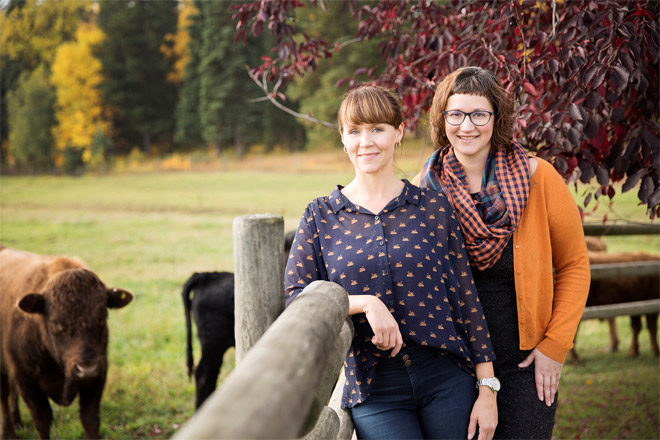By Amy Quarry, Co-Owner of Long Table Grocery –
Throughout this past year I have become fascinated by the concept of permaculture. The permaculture principles are most commonly applied to gardening and my family finds my interest in this subject very entertaining since my thumbs tend to be more black than green. Many a carrot has failed to live up to its potential under my care, something I am not sure even a lifetime of studying permaculture will rectify, despite my best efforts.

Where I feel permaculture really gets interesting, though, is when we apply the Design Principles to other kinds of systems including our communities, our businesses, and our personal lives. The Design Principles are truths that many of our cultures have carried with us for generations in proverbs, teachings, legend, and story. Permaculture and the application of its principles helps us access this collective knowledge from the past in a way that transcends culture, religion, and social systems. When we actively apply these principles to our lives, businesses, and social structures, we are then able to create systems that are sustainable and life-supporting for all.
At the heart of permaculture are three ethics: care for the Earth, care for people, and fair share——–These ethics form the foundation of the Permaculture Principles.
12 Permaculture Principles (as described by David Holmgren, co-founder of the permaculture movement):
Observe and Interact – “Beauty is in the mind of the beholder.” By taking the time to engage with nature we can design solutions that suit our particular situation.
Catch and Store Energy – “Make hay while the sun shines.” By developing systems that collect resources when they are abundant, we can use them in times of need.
Obtain a Yield – “You can’t work on an empty stomach.” Ensure that you are getting truly useful rewards as part of the work you are doing.
Apply Self-regulation and Accept Feedback – “The sins of the fathers are visited on the children of the seventh generation.” We need to discourage inappropriate activity to ensure that systems can continue to function well. Negative feedback is often slow to emerge.
Use and Value Renewable Resources and Services – “Let nature take its course.” Make the best use of nature’s abundance to reduce our consumptive behaviour and dependence on non-renewable resources.
Produce No Waste – “Waste not, want not.” By valuing and making use of all the resources that are available to us, nothing goes to waste.
Design from Patterns to Details – “Can’t see the forest for the trees.” By stepping back, we can observe patterns in nature and society. These can form the backbone of our designs, with the details filled in as we go.
Integrate Rather Than Segregate – “Many hands make light work.” By putting the right things in the right place, relationships develop between those things and they work together to support each other.
Use Small and Slow Solutions – “The bigger they are, the harder they fall.” Small and slow systems are easier to maintain than big ones, making better use of local resources and produce more sustainable outcomes.
Use and Value Diversity – “Don’t put all your eggs in one basket.” Diversity reduces vulnerability to a variety of threats and takes advantage of the unique nature of the environment in which it resides.
Use Edges and Value the Marginal – “Don’t think you are on the right track just because it’s a well-beaten path.” The interface between things is where the most interesting events take place. These are often the most valuable, diverse, and productive elements in the system.
Creatively Use and Respond to Change – “Vision is not seeing things as they are but as they will be.” We can have a positive impact on inevitable change by carefully observing and then intervening at the right time.
I have really enjoyed connecting these principles to my work and everyday life as they have provided natural and commonsense solutions to physical and interpersonal puzzles. It is my hope that you enjoy working with these principles as much as I have and that you find solutions that support and guide you in your everyday life.
Amy Quarry & Jenny Moroni, co-owners of Long Table Grocery, are using the permaculture principles as the foundation and soul of their business model. Their vision is to support their community and build capacity in the local economy while also making it easier for people to choose local, organic and Fair Trade products. See www.LongTableGrocery.com for more info.
* This article reprinted with permission and originally published in Discover Wellness magazine, Issue 43 – October 2017, www.discoverwellnessbc.ca/magazine/

